"Ladies and gentlemen, please fasten your seat belts as we prepare for landing in Zürich."
Within less than an hour of hearing this announcement on an airplane, you could be sitting in your first meeting in an office in downtown Zurich – thanks to a world-class infrastructure. Not the only advantage Switzerland offers to international companies looking for a new hub in Europe.
In 25 minutes by train and tram, and for a fare of just 3.30 francs, you can travel from Zurich International Airport to downtown Zürich. Thanks to Switzerland’s expenditures on public transport infrastructure, citizens of the Alpine nation travel more kilometers in trains than any other nation.
The effective and efficient transport network which includes trains, buses, trams and even boats provides the Swiss with affordable and reliable mobility, which in turn has helped the growth of suburban Switzerland and made it a model for other countries.
In fact, it is not only the outstanding railway infrastructure that makes Switzerland a world-class business destination. The air travel infrastructure is extraordinary as well, with airports strategically located in all regions (eg. Zürich, Geneva, Basel, Bern, Agno, St. Moritz). The Zurich airport (ZRH), for instance, boasts 30 intercontinental flights (fig. 51) and is one of the world's top rated airports according to Skytrax.
Switzerland is an ICT Haven
If Zurich airport has not impressed you, surely the following will: ICT (information and communication technology) companies already enjoy Switzerland’s electrical and communications infrastructure. With the world's fifth fastest internet connection (and the second fastest in Europe), Swiss telecommunications companies know that ever faster speeds and increased broadband give them the edge.
Companies like Google, Microsoft and Evernote benefit from these high speed connections, as does the general public. Obviously, the internet is of no use without power! It is a good thing that Switzerland is a net exporter of electric energy which it generates on a growing scale from renewables like hydro, wind and solar. The security in the electrical grid ensures that the servers running the heart of these ICT companies are always cooled and functioning.
The nation’s strong international reputation in ICT was recently stenghtened when CeBIT, the world's largest and most international expo within that field, invited Switzerland to be partner country for the 2016 edition.
Switzerland Harvests Knowledge
Sure, Switzerland is a country lacking natural resources for exploitation. But while the physical infrastructure is bar none for effectiveness and efficiency (fig. 50), the knowledge infrastructure provides Switzerland with a solid foundation for being a world leader in the new economy.
Home to two of the best research institutions in the world, namely the Swiss Federal Institutes of Technology in Zürich and in Lausanne, Swiss secondary education works hand in hand with the private sector to provide students with both the well-founded theoretical knowledge and the practical skills needed in today’s competitive ICT environment. In fact, in the past twenty years, the ETH has had more than 300 spin-off companies come out - and ICT companies lead the way.
Switzerland’s unique two-tier education system allows young people to start gaining practical experience from the age of 15 years. This system is especially helpful for the mechanical and electrical engineering industries, where trained professionals are hard to find. It also means that many students working at obtaining a Masters or PhD in the ICT field come to their studies often with over five years of hands-on work experience in that field. These students know the challenges and needs of the industry and are gaining the theoretical knowledge and other skills to solve them.
Companies like IBM and Walt Disney Research often work in partnership with these institutions and their students. Walt Disney Research’s landing page perfectly summarizes the advantages of their facility in Switzerland, touching on both access to knowledge and easy travel:
"Our lab in Zürich is perfectly placed for easy access to the Swiss Federal Institute of Technology Zürich (ETH), whose formidable faculty in science and engineering includes 21 Nobel Laureates. With strong ties to the Computer Graphics lab at ETH, the Zürich lab is influencing video of the future... In spite of distance, our Zürich researchers have frequent contact with The Walt Disney Company business units."
This is also what attracted Google, says Dan Bangser. Mr. Bangser is Director North America, Investment Promotion, at Switzerland Global Enterprise, an organization that promotes Switzerland as a business location around the world.
"Google came to Switzerland about ten years ago with a small office of six people to tweak products for the local market, like they do in many, many locations around the world. And today, Google’s Swiss location is their largest engineering development center in the world outside of its headquarters. 1300 people are developing Google products in Switzerland. Why? Because, as Google says, that’s the country where they can get the talent that they need to succeed. They prosper faster in Switzerland than they would in any other country. That's the bottom line."
[layerslider id="4"]
(Photographs copyright Swiss Global Enterprise)

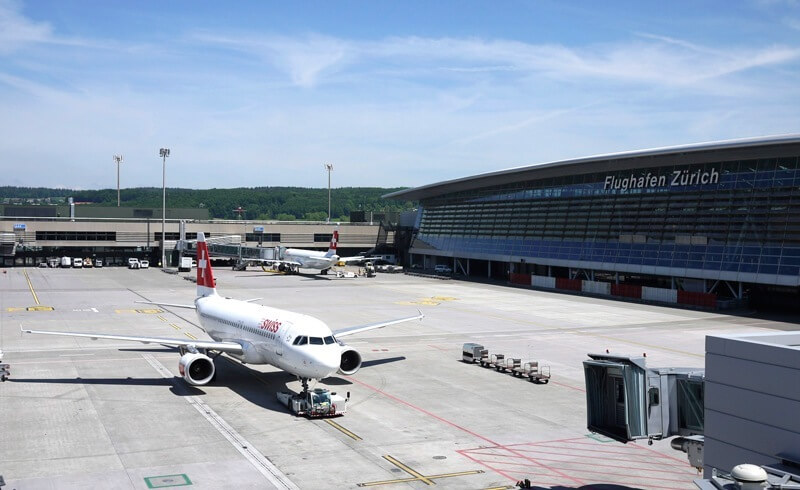

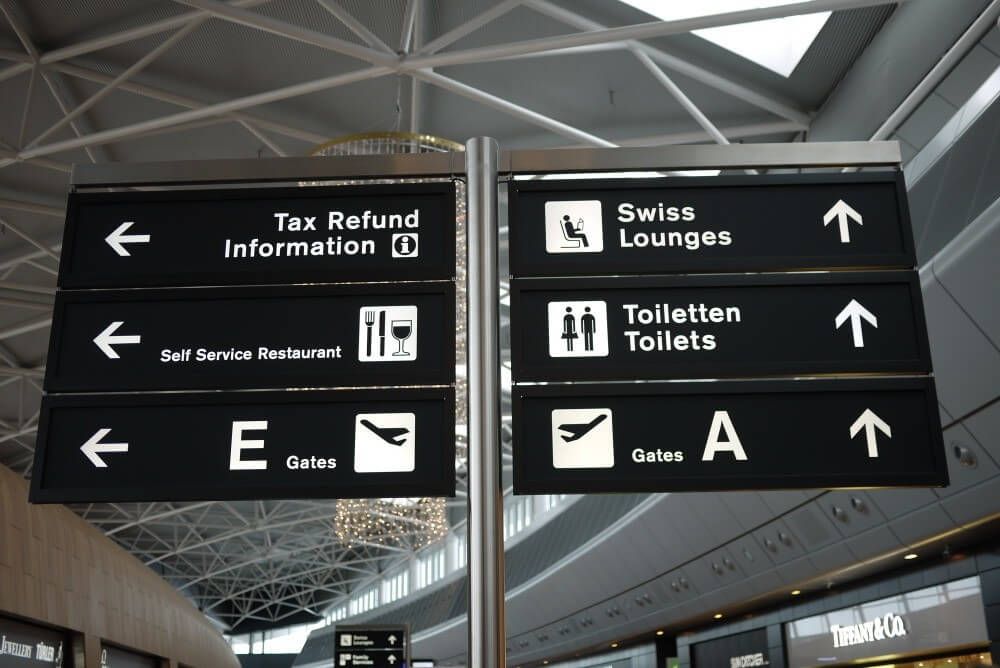
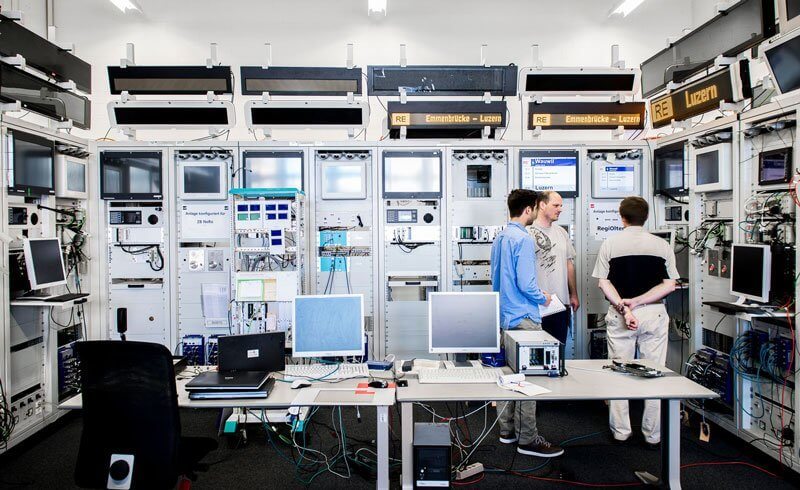
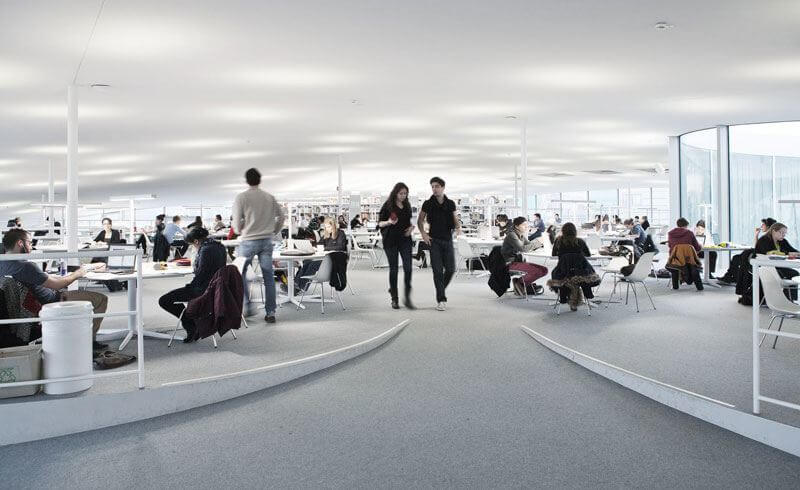
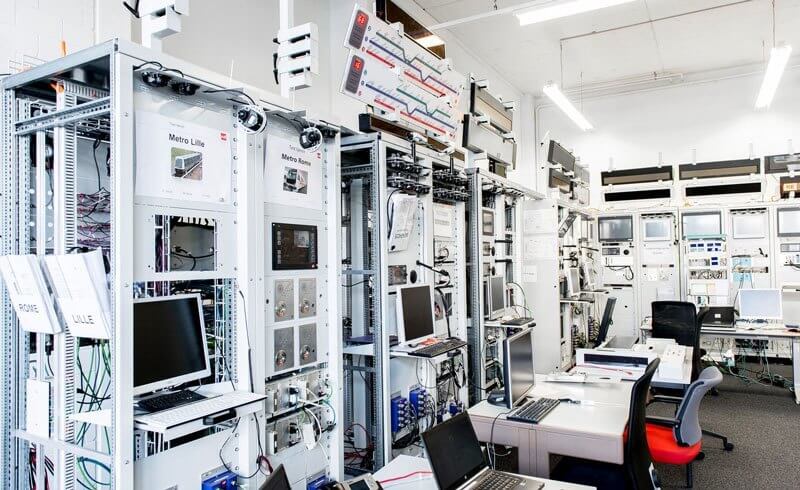




“It also means that many students working at obtaining a Masters or PhD in the ICT field come to their studies often with over five years of hands-on work experience in that field.”
Currently working / studying in the ICT field, I only know of very few people for whom it is the case, and none of them are due to the two-tier education system. You would need solid sources to claim something like this, and with no sources cited, I cannot trust what you wrote. Personally, I can see the situation as follows:
In Switzerland, before getting any job, you will most likely be required to have appropriate education and/or training, even for something that may seem as simple as a cashier position. When you are finished with middle school, you get to choose what kind of training or education you want to go towards. It’s quite early to choose, but as I will explain in a bit, it can be flexible later on. The top third of students is eligible for Gymnasium (The equivalent of high-school, but slightly more difficult to account for the fact that only the top third is eligible). Once you finish your 3 years of Gymnasium, you can go study in any Swiss university with no other prerequisites (except for medicine in some cases). This strong selection process allows the freedom for students to go to top-tier universities like the ETHZ and the EPFL, and those universities in turn will get top-notch students.
The other path, somewhat more practical, is meant to tap into the skills of people who prefer to be practical, or choose to work in a more practical field. This way, people do not lose their time going through academical loops, and maximize their professional skillset very early on. Whether you want to be working as some specific kind of engineer (field or IT engineers qualify, for example), hostess, or even cashier, you can choose that very path in those practical schools that will lead you there. And, after 3-4 years, when you complete this training and courses, you can either go to a practical university, if you need more training (in the case of engineers, for example) which will award you with a Bachelor’s degree. For the other professions which do not require such extended coursework, they can start working, or decide to apply to an University (if their past studies match the field they want to study closely enough), or if they do not have the theoretical background, they can apply to go through Gymnasium.
This allows academical people to go fast and efficiently, practical people to finish school with very important skills for their future, and people who failed middle school but still want to go to university get more time to catch up and learn enough material to be ready for university.
That’s where I see the benefits.